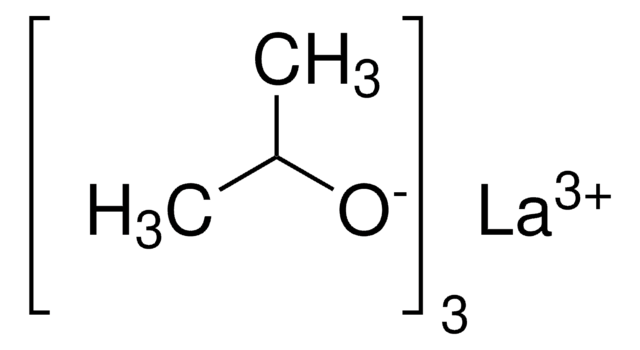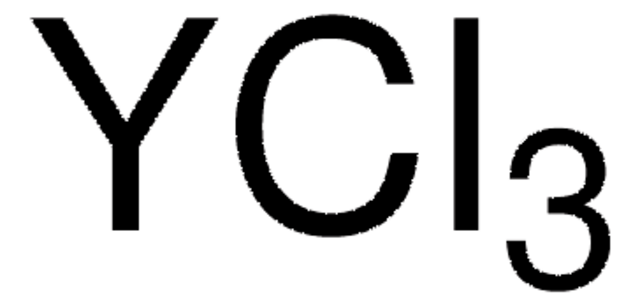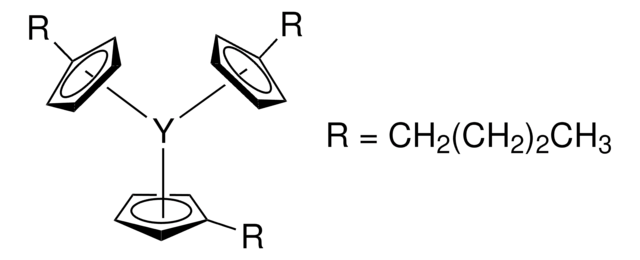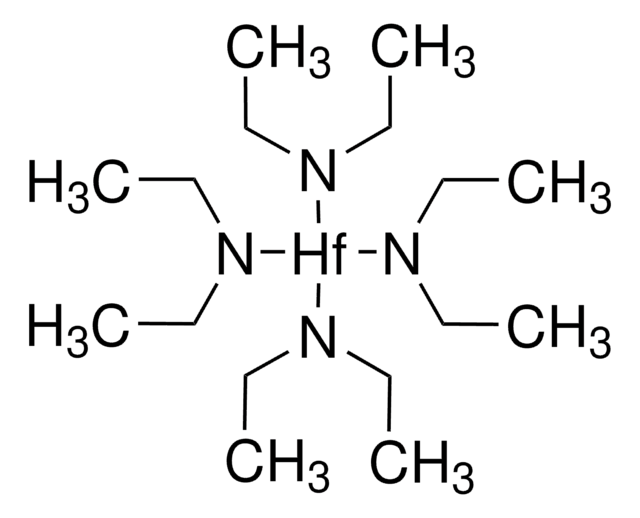Wichtige Dokumente
665916
Yttrium(III)-tris(isopropoxid)
Synonym(e):
Tris-(isopropoxy)-yttrium(III)
About This Item
Empfohlene Produkte
Form
solid
Qualitätsniveau
Eignung der Reaktion
core: yttrium
reagent type: catalyst
SMILES String
CC(C)O[Y](OC(C)C)OC(C)C
InChI
1S/3C3H7O.Y/c3*1-3(2)4;/h3*3H,1-2H3;/q3*-1;+3
InChIKey
PYLIDHFYDYRZSC-UHFFFAOYSA-N
Anwendung
- Stereoselective conjugate addition reactions
- Ring-opening polymerizations
- Generation of reactive enolates by enantioselective protonation reactions
- Cyano-phosphorylation of enone and allylic substitution
- Synthesis of nanocomposites
Reactant for the preparation of flat HfO2 films
Rechtliche Hinweise
Signalwort
Warning
H-Sätze
Gefahreneinstufungen
Eye Irrit. 2 - Flam. Sol. 2 - Skin Irrit. 2 - STOT SE 3
Zielorgane
Respiratory system
Lagerklassenschlüssel
4.1B - Flammable solid hazardous materials
WGK
WGK 3
Persönliche Schutzausrüstung
Eyeshields, Gloves, type P3 (EN 143) respirator cartridges
Hier finden Sie alle aktuellen Versionen:
Besitzen Sie dieses Produkt bereits?
In der Dokumentenbibliothek finden Sie die Dokumentation zu den Produkten, die Sie kürzlich erworben haben.
Artikel
Spectral conversion for solar cells is an emerging concept in the field of photovoltaics, and it has the potential to increase significantly the efficiency of solar cells. Lanthanide ions are ideal candidates for spectral conversion, due to their high luminescence efficiencies and rich energy level structure that allows for great flexibility in the upconversion and downconversion of photons in a wide spectral region (NIR-VIS-UV).
Verwandter Inhalt
Professor Shibasaki's research focuses on the development of novel cooperative asymmetric catalytic systems that allowed for streamlined synthesis of enantioenriched high-value chiral building blocks.
Unser Team von Wissenschaftlern verfügt über Erfahrung in allen Forschungsbereichen einschließlich Life Science, Materialwissenschaften, chemischer Synthese, Chromatographie, Analytik und vielen mehr..
Setzen Sie sich mit dem technischen Dienst in Verbindung.![Tris[N,N-bis(trimethylsilyl)amid]yttrium](/deepweb/assets/sigmaaldrich/product/structures/867/983/5b7cb7cd-8879-49e4-a9d7-29c52aaa82a0/640/5b7cb7cd-8879-49e4-a9d7-29c52aaa82a0.png)










